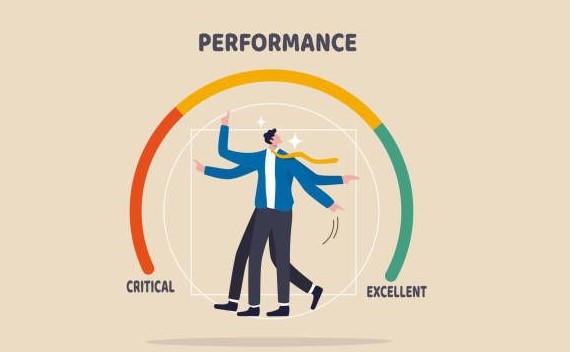The academic journey is a marathon, not a sprint. It demands consistent effort, effective strategies, and a relentless pursuit of knowledge. While every student is unique, there are tried-and-true methods to boost performance and achieve academic success. This guide provides practical tips to help you maximize your potential and excel in your studies.
1. Master the Art of Time Management:
Time is your most valuable resource. Effective time management is crucial to boost performance and avoid feeling overwhelmed. Begin by creating a realistic schedule that allocates dedicated time slots for studying, attending classes, completing assignments, and prioritizing essential tasks. Break down large assignments into smaller, manageable chunks to avoid procrastination and ensure timely completion.
2. Cultivate Active Learning Techniques:
Passive learning, like simply reading textbooks, can be ineffective. Engage in active learning techniques to boost performance by making information stick. Take detailed notes, summarize key concepts in your own words, and practice answering past exam questions. Consider using flashcards, creating mind maps, or joining study groups to reinforce your understanding.
3. Optimize Your Learning Environment:
The environment you study in significantly impacts your ability to concentrate. Choose a quiet, distraction-free space with adequate lighting and comfortable seating. Minimize noise and interruptions from phones, social media, or television. Experiment with different environments to find what works best for you – whether it’s a library, a cozy corner at home, or a quiet café.
4. Embrace Effective Study Habits:
Adopt smart study habits to boost performance and maximize your study time. Instead of cramming the night before an exam, start studying early and review material regularly. Spaced repetition – reviewing information at increasing intervals – is a proven technique for long-term memory retention. Take breaks to avoid burnout and recharge your focus.
5. Harness the Power of Prioritization:
Don’t try to tackle everything at once. Prioritize tasks based on their importance and deadlines. Use a to-do list or a planner to keep track of your assignments, exams, and other commitments. Focus on completing the most important tasks first, and don’t be afraid to delegate or ask for help if needed.
6. Embrace the Power of Collaboration:
Study groups can be incredibly beneficial for boosting performance. Collaborating with peers allows you to share insights, discuss challenging concepts, and learn from different perspectives. Working together can also help you stay motivated and accountable for your studies.
7. Seek Guidance from Your Professors:
Don’t hesitate to reach out to your professors for clarification or guidance. Attend office hours, ask questions during class, and engage in meaningful conversations with your instructors. Their expertise can provide valuable insights and support as you navigate your academic journey.
8. Embrace Mindfulness and Stress Management:
Stress can hinder your ability to focus and perform at your best. Practice mindfulness techniques like meditation or deep breathing exercises to manage stress levels. Engage in activities you enjoy, like exercise, hobbies, or spending time with loved ones, to maintain a healthy balance and mental well-being.
9. Fuel Your Body and Mind:
Your physical health significantly impacts your academic performance. Ensure you’re getting enough sleep, eating a healthy diet, and staying hydrated. Limit your caffeine intake and avoid excessive alcohol consumption. Regular exercise can improve blood flow, enhance cognitive function, and reduce stress levels.
10. Embrace Feedback and Reflect on Your Progress:
Seek feedback from your professors and peers on your work. Identify areas for improvement and make adjustments to your study strategies. Reflect on your successes and challenges to gain valuable insights into your strengths and weaknesses. Continuous improvement is key to boosting performance and achieving your academic goals.
11. Stay Organized and Eliminate Distractions:
A cluttered desk and disorganized notes can hinder your focus and productivity. Keep your study space tidy and organized. Eliminate distractions by putting away your phone, closing unnecessary tabs on your computer, and letting people know you’re unavailable for a specific time.
12. Celebrate Your Achievements:
Recognize your successes and acknowledge your efforts. Reward yourself for achieving milestones, even small ones. Positive reinforcement helps maintain motivation and build confidence. Celebrate your hard work and appreciate the progress you’ve made.
13. Embrace the Growth Mindset:
Believe in your ability to learn and grow. View challenges as opportunities for improvement and setbacks as stepping stones to success. Adopt a growth mindset by actively seeking out new information, challenging yourself, and embracing feedback.
14. Seek Support When Needed:
Don’t be afraid to seek help when you need it. Reach out to your professors, academic advisors, tutors, or classmates for assistance. Many universities offer student support services like counseling, writing centers, and academic advising to help you overcome challenges and achieve your goals.
Boosting performance in your studies is an ongoing process that requires dedication, effort, and a willingness to learn and adapt. By implementing these tips, you can optimize your learning experience, enhance your academic performance, and unlock your full potential. Remember, every small step you take contributes to your overall success. Believe in yourself, stay focused, and never stop striving for improvement.
